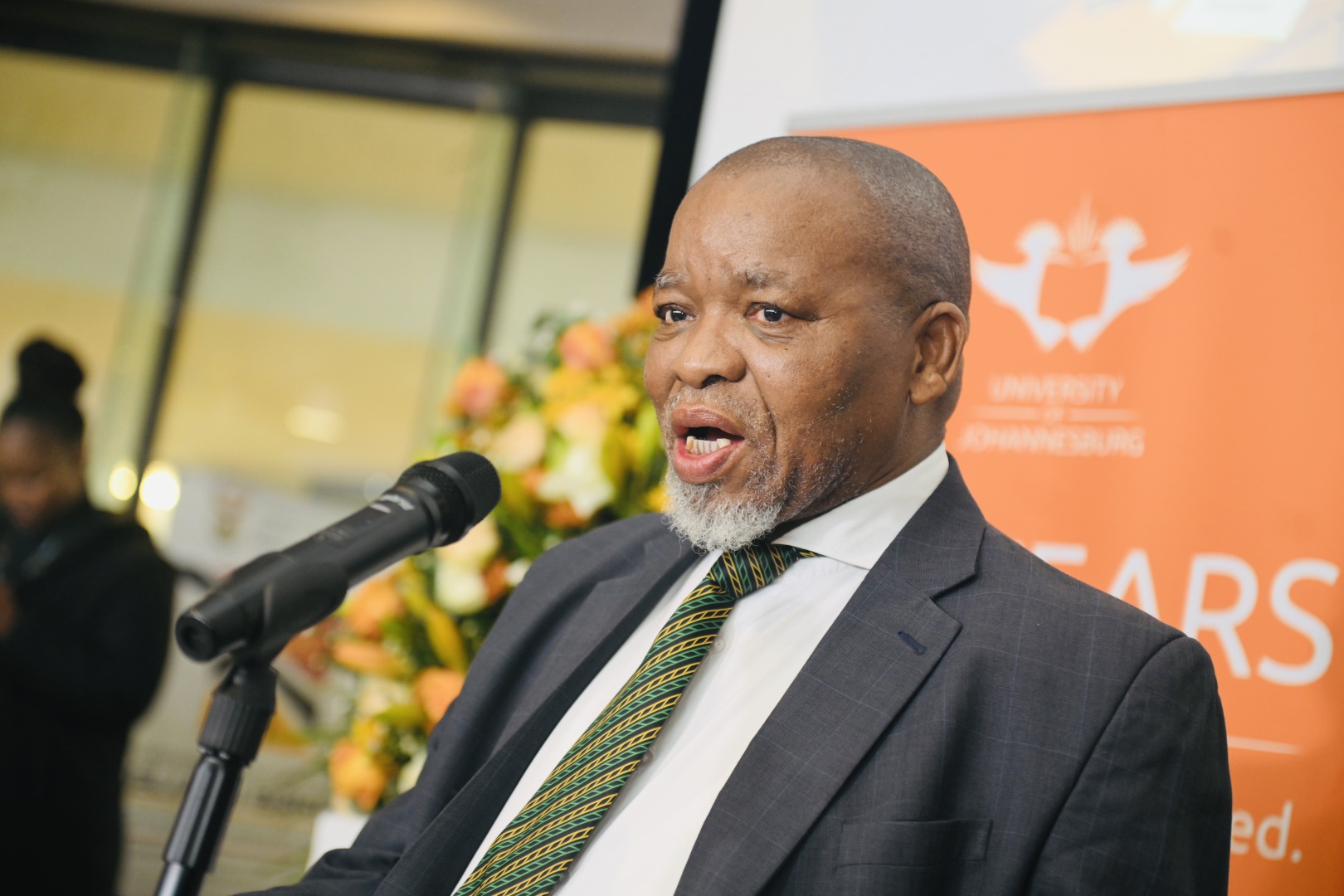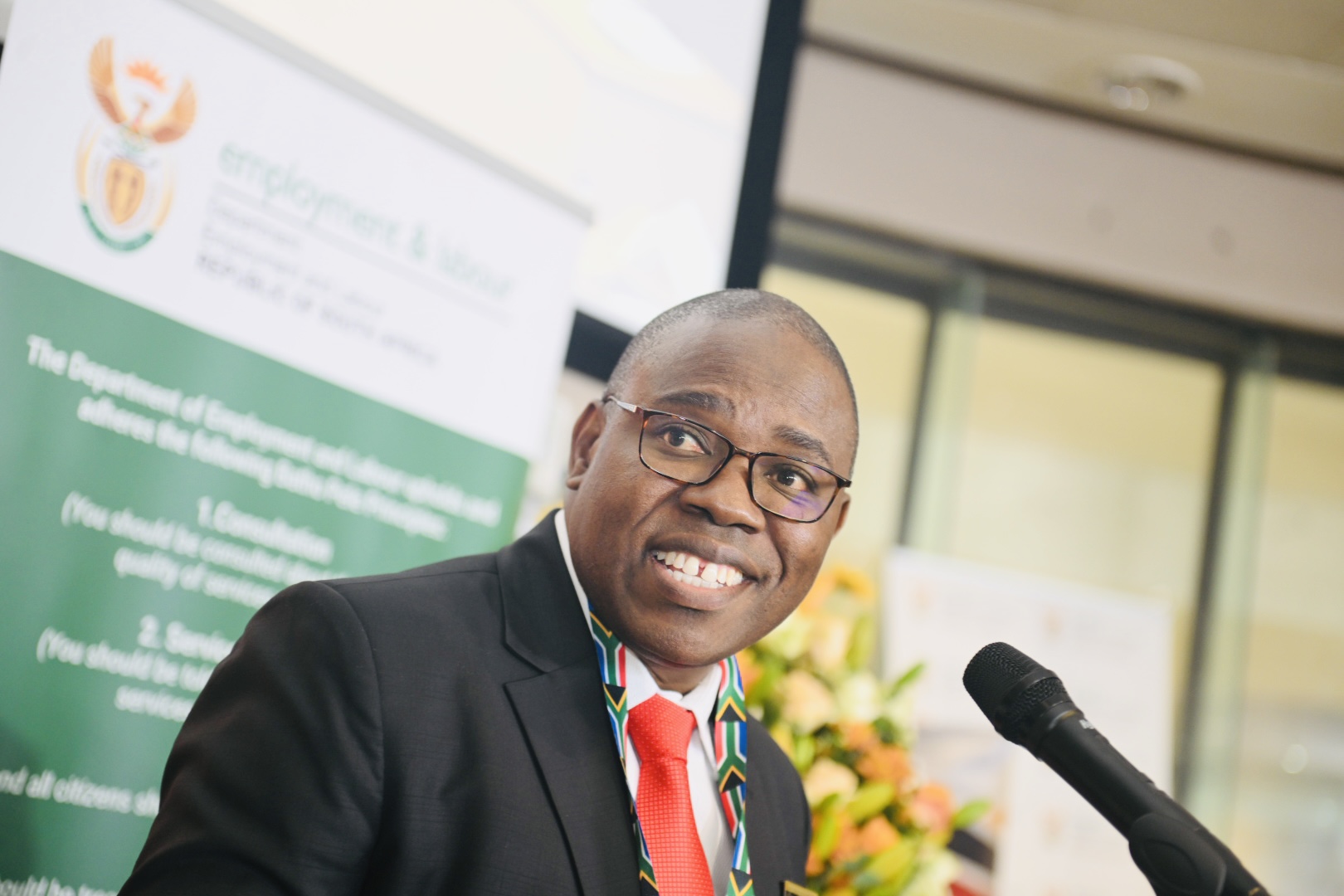The secret to changing the lives of communities, is active citizenry. This was the sentiment shared by Gwede Mantashe as he delivered the keynote address of the second annual Elijah Barayi Memorial Lecture.

“One of the mistakes we have made, ministers which me must correct, is to have power politically but to have a passive society. We have never promoted an active society in changing the country and changing their lives. Change in society is a function of active citizenry. The unions, should be at the forefront of igniting communities,” he said.
Mantashe, the current Minister of Minerals and Petroleum Resources spoke deviated from a formal address, opting rather to deliver a conversational speech. In his relaxed tone, he shared personal anecdotes about Barayi and highlighted major wins for workers spearheaded by Barayi.
The lecture is held annually to commemorate the life of Barayi who was one of the founding members of the National Union of Mineworkers (NUM) and the first president of the Congress of South African Trade Unions (COSATU). It’s hosted by UJ’s SARChI Chair in Industrial Development and the Department of Employment and Labour.
The lecture was attended by government leaders, representatives from organised labour, staff and students of UJ, government representatives and members of the Barayi family.
In his opening remarks, UJ Vice-Chancellor and Principal Professor Letlhokwa Mpedi said UJ was proud to be part of keeping the legacy of Barayi alive.

“It is a privilege for UJ to host the second Elijah Barayi Memorial Lecture in commemoration of the life and legacy of one of South Africa’s most influential labour leaders and the first president of COSATU. The lecture series is a platform to connect Mr Barayi’s enduring contributions to the labour movement and social justice,” Prof Mpedi said.
Minster of the Department of Employment and Labour Nomakhosaza Meth reiterated her department’s commitment to keeping Barayi’s memory alive through the lecture.
“It is an immense honour and profound responsibility for us as Employment and Labour to have made it possible for us to host this second instalment of this lecture. I want to commit to the family that we will be doing it annually, despite any changes that may happen in the future,” she said.
Mantashe shared memories of Barayi as a man of courage and great conviction, having led labour movements at the height of the Apartheid regime.
“Allow me to begin by expressing my gratitude to the University of Johannesburg for inviting me to deliver this important lecture about this well rounded, liberation movement cadre, Elijah Barayi. Let me hasten to mention that we are not here to read his biography. He was a self-less activist, and I want to reflect on the life he lived,” Mantashe said.

The minister used the lecture to share nuggets of who Barayi was. “Many think he was just this president. He was a mine worker. He worked in Blyvooruitzicht [Gold Mine in Carletonville]. My hope is that after hearing how he handled day to day challenges, some among you may be inspired by him.”
Mantashe highlighted how impactful Barayi’s term as one of the founders of the National Union of Mineworkers (NUM) had been, including his leadership of one of the biggest strikes by mineworkers to date. Mantashe shared that because of this strike, there are many rights mineworkers now enjoy.
SARChI Chair holder of the chair in Industrial Development Professor Fiona Tregenna said in her closing remarks shared that a dual role of the lecture is to recognise the role of organised labour in getting South Africa to its democracy.
“It’s important to recognise the contribution of organised labour, to the democracy we enjoy today. That is the impetus behind this lecture. To recognise that contribution to those rights that we take for granted. These are the rights that were fought for by the likes of Elijah Barayi. That was his contribution beyond the workplace,” Prof Tregenna said.
Watch the full lecture below:



